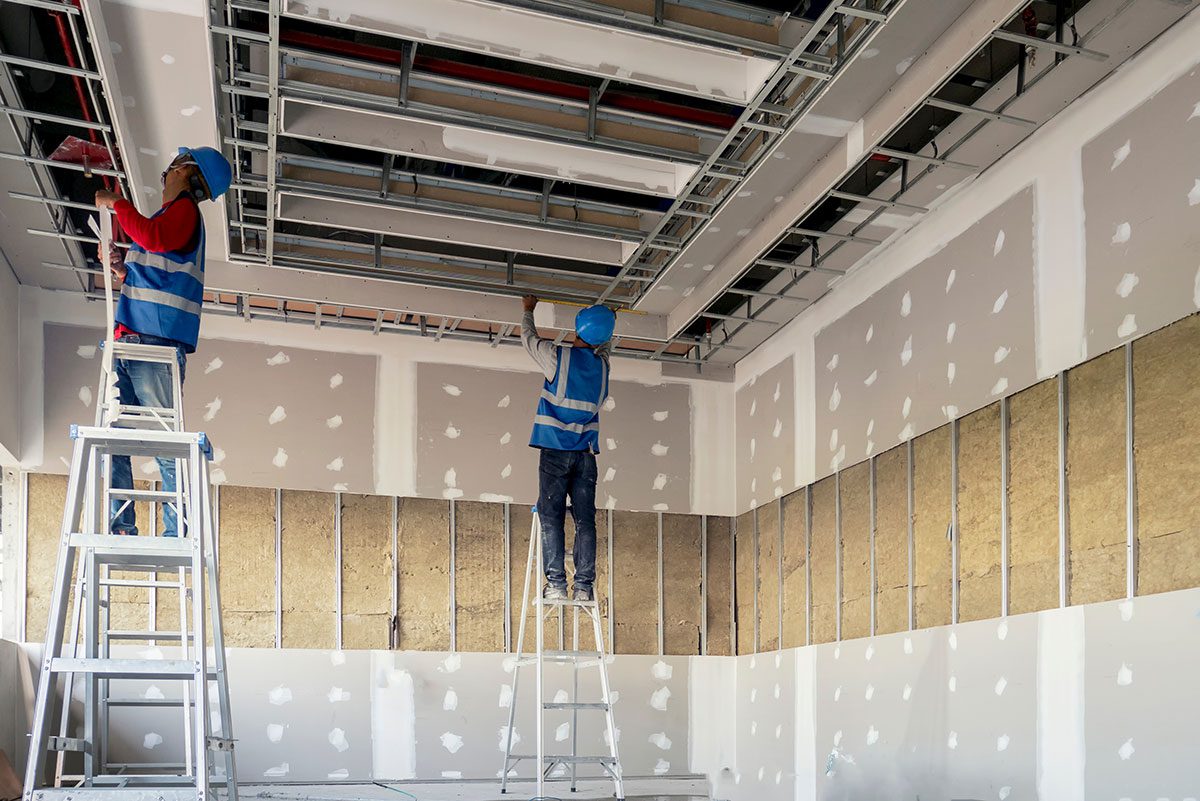The Importance of Insulation for HVAC Efficiency
The role of insulation in HVAC systems is often undervalued. Yet, this seemingly mundane aspect of building construction directly affects energy efficiency and operational costs.
Let’s dive into why insulation is crucial for your business’s HVAC performance.
The Importance of Insulation in Your Commercial Building
Insulation is a barrier that helps maintain your building’s internal temperature year-round.
Good insulation helps maintain the indoor climate by reducing unwanted heat exchange between your building and the outside. When it’s effective, less energy is needed to heat or cool the space, easing the burden on your HVAC system.
It doesn’t have to run as long or hard. As a result, your energy bills become lower while your HVAC equipment works less, reducing wear and tear.
Good insulation also means less dust, pollen, and external pollutants getting in, which is a big plus for the health and comfort of everyone inside.
Types of Building Insulation
There is a myriad of insulation types today. Here, we’ll only mention a few of the most widespread in modern commercial buildings.
Blanket Insulation
Common in walls and ceilings, this comes in batts or rolls and is usually made from fiberglass, mineral wool, or natural fibers. This type of insulation is versatile and cost-effective, fitting snugly between studs, joists, and beams.
Foam Board Insulation
These rigid panels are great for floors, walls, and roofs and are made from polystyrene or polyurethane. Its ability to reduce heat conduction through structural elements such as wood and steel studs makes it highly effective for thermal resistance.
Spray Foam Insulation
Made from materials like polyurethane, it works particularly well for sealing gaps and adding insulation in hard-to-reach areas. Applied as a liquid that expands and hardens, it’s excellent for filling irregular spaces and creating airtight seals, significantly reducing air leakage.
Loose-Fill and Blown-In Insulation
This type is ideal for retrofitting insulation in existing buildings and insulating irregularly shaped or hard-to-reach areas. It’s blown into place using special equipment and provides good coverage, particularly when installing other types of insulation effectively is difficult.
Does Your Insulation Work Properly?
Determining the effectiveness of insulation in a commercial building involves several steps and considerations.
Energy Audit
The most comprehensive way to assess insulation effectiveness is through an energy audit. Professional auditors use tools like infrared cameras to detect areas where insulation may be lacking, or heat is being lost.
Visual Inspection
Visible signs of poor insulation include uneven temperatures in different building areas, cold walls or floors, or issues like frost buildup on the roof in winter. Drafts or air leaks are also fairly easy to spot while inspecting areas around windows, doors, and other openings.
Utility Bills Analysis
Compare your energy bills over time. Unusually high heating or cooling costs can indicate poor insulation. Seasonal variations in energy bills are normal, but significant spikes could point to insulation issues.
Insulation R-Value Check
Insulation’s effectiveness is measured by its R-value, indicating its heat flow resistance. You can check the thickness and material type of the current insulation and compare it with the recommended R-values for your region and building type. Building codes often provide guidelines on minimum R-values.
HVAC System Performance Examination
If your HVAC system struggles to maintain temperatures, it might indicate poor insulation. Efficient insulation should help maintain stable indoor temperatures with minimal HVAC cycling.
Professional Insulation Inspection
For a more thorough evaluation, consider hiring a professional to inspect your insulation. They can provide detailed insights and recommendations specific to your building.
Consult Building Plans or Construction Documents
These documents might provide information about the insulation materials used during construction or any subsequent upgrades. This can give you an idea of what to expect regarding insulation quality.
Listen to Occupant Feedback
Sometimes, the people using the building are the first to notice issues. Complaints about drafty areas, fluctuating temperatures, or noise issues can all indicate insulation problems.
Best Practices for Maximizing Insulation Benefits
The main factors that impact the effectiveness of insulation for your HVAC system include:
- Installation Quality. Proper installation is crucial. Insulation needs to be evenly distributed without gaps. Ineffective installation can significantly diminish its benefits.
- Regular Maintenance. Both your insulation and HVAC system need regular check-ups to maintain efficiency.
- In older buildings, updating insulation can significantly improve HVAC efficiency. Newer materials often have better insulating properties.
While it might not be the most visible part of your business, insulation ensures your HVAC system output is as efficient as possible. Investing in good insulation can provide a significant return on investment over time.
If you want to learn more about ways to increase your HVAC effectiveness, our experts are here to help. Call us, and let’s talk!


